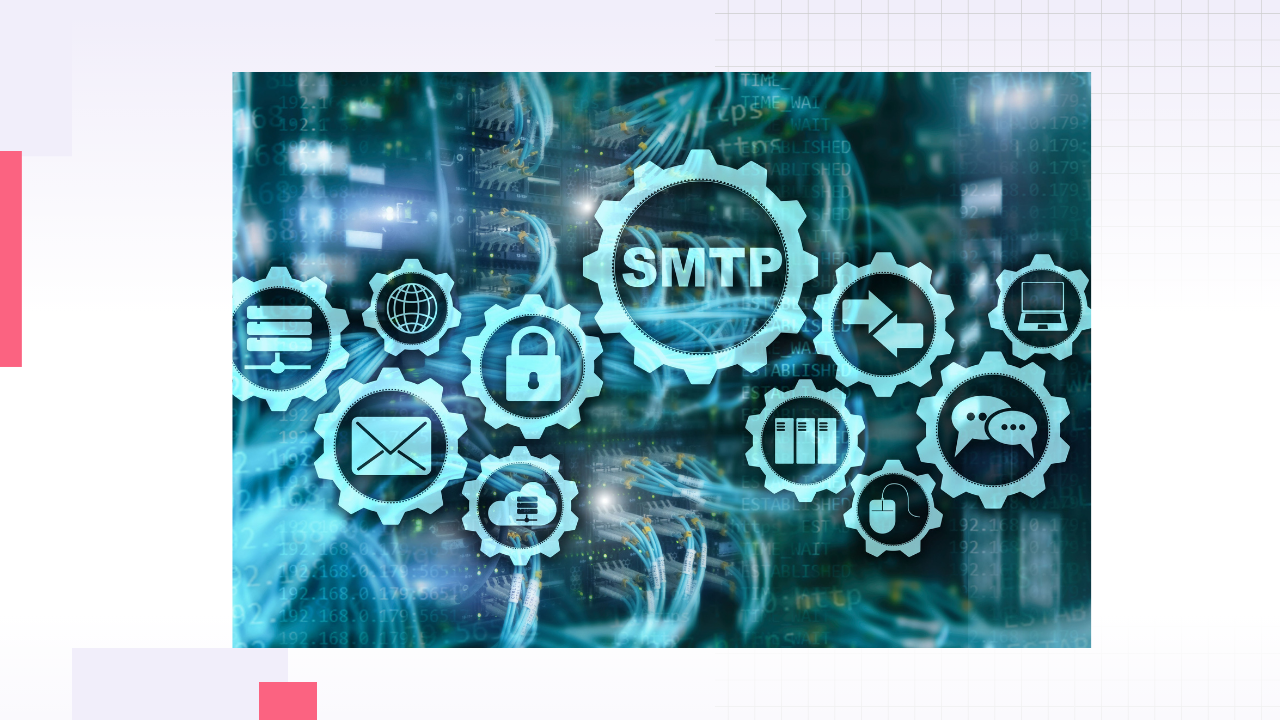SMTP authentication stands for Simple Mail Transfer Protocol authentication. It is a process that verifies the identity of email senders before allowing their messages to be sent. This verification helps prevent unauthorized users from sending emails through your server. SMTP authentication is essential for maintaining email security and integrity.
It significantly reduces the risk of spam, phishing attacks, and email spoofing. With the increasing sophistication of cyber threats, businesses and individuals must adopt strong email security practices. Implementing SMTP authentication ensures that only authorized users can send emails, thereby safeguarding sensitive information and maintaining trust in digital communications.
The Importance Of Email Integrity
Email remains a crucial tool for communication in 2024. Ensuring the integrity of emails is more important than ever. Email integrity means that the messages you send and receive are authentic and secure. This is where SMTP authentication comes in. It helps verify the sender's identity, making it harder for fraudsters to send fake emails. Let's explore why email integrity matters so much.
The Role Of Email In Communication
Email is a primary mode of communication for businesses, schools, and personal use. It allows for quick and efficient exchange of information. Here are key roles of email in communication:
-
Business Communication: Companies use email to communicate with clients, partners, and employees.
-
Educational Communication: Schools and universities send important updates to students and staff via email.
-
Personal Communication: Friends and family stay in touch through emails.
-
Marketing: Businesses send promotional materials and newsletters to customers.
Emails also serve as a record of communication. They can be referred to later for information and documentation. This makes email a reliable and important tool.
|
Role |
Examples |
|---|---|
|
Business |
Client meetings, project updates |
|
Education |
Assignments, exam schedules |
|
Personal |
Birthday wishes, event invitations |
|
Marketing |
Discount offers, product launches |
Impact Of Email Fraud And Spoofing
Email fraud and spoofing are major threats. Fraudsters often send fake emails to trick recipients. These emails look like they come from trusted sources. This can lead to serious problems:
-
Financial Loss: Victims may be tricked into sending money to fraudsters.
-
Data Breach: Hackers can steal sensitive information.
-
Reputation Damage: Businesses can lose trust if their emails are spoofed.
-
Legal Issues: Companies may face legal problems if fraud occurs through their email system.
SMTP authentication helps prevent these issues. It verifies the sender's identity before allowing an email to be sent. This reduces the risk of fraud and spoofing. It's a key part of maintaining email integrity. Businesses and individuals must prioritize email security. Using tools like SMTP authentication can safeguard their communication.
Understanding Smtp Authentication
Ensuring email integrity is crucial in 2024. Email remains a primary communication tool for businesses and individuals. Understanding SMTP Authentication is essential for protecting your email from unauthorized access and ensuring the delivery of your messages. This article delves into the importance of SMTP Authentication and how it secures your email communication.
What Is Smtp?
Simple Mail Transfer Protocol (SMTP) is the standard protocol for sending emails across the Internet. It is the backbone of email communication, enabling the transfer of messages from one server to another. Here are some key aspects of SMTP:
-
Message Transfer: SMTP handles the transmission of emails from a client to a server or between servers.
-
Reliability: SMTP ensures the reliable delivery of emails, retrying if the recipient's server is temporarily unavailable.
-
Message Queuing: SMTP queues messages for delivery, ensuring that they are sent even if there are temporary issues.
-
SMTP Commands: SMTP uses specific commands like HELO, MAIL FROM, RCPT TO, DATA, and QUIT to communicate between servers.
|
SMTP Command |
Description |
|---|---|
|
HELO |
Introduces the client to the server |
|
MAIL FROM |
Specifies the sender's email address |
|
RCPT TO |
Specifies the recipient's email address |
|
DATA |
Indicates the start of the message body |
|
QUIT |
Terminates the SMTP session |
SMTP is foundational for email communication, making it essential to understand its workings. Knowing how SMTP operates helps in troubleshooting email issues and enhancing email security.
The Significance Of Authentication
SMTP Authentication adds a layer of security to email communication. It ensures that the email server verifies the identity of the sender before allowing message transmission. Here are some reasons why SMTP Authentication is significant:
-
Preventing Spam: Authentication helps reduce spam by ensuring that only authorized users can send emails.
-
Enhancing Security: It prevents unauthorized access to your email server, protecting sensitive information.
-
Improving Deliverability: Authenticated emails are less likely to be marked as spam, improving their chances of reaching the inbox.
-
Compliance: Many regulations require businesses to secure their email communications through authentication.
SMTP Authentication involves the use of credentials like a username and password. This ensures that the sender is legitimate. Here's a simple example of how SMTP Authentication works:
AUTH LOGIN
dXNlcm5hbWU=
cGFzc3dvcmQ=
The above example shows base64 encoded username and password used in the authentication process. SMTP Authentication is a crucial step in maintaining the integrity and security of your email communications in 2024.
Challenges In Email Security
Email security faces many challenges in 2024. The stakes are high. Ensuring email integrity is crucial. SMTP authentication plays a vital role. It guards against threats and keeps sensitive information secure. Let's dive into the challenges in email security today.
Rise Of Sophisticated Phishing Attacks
Phishing attacks are more advanced than ever. Attackers use clever tactics to trick users. They impersonate trusted sources to steal data.
Key characteristics of modern phishing attacks:
-
Realistic Emails: Fake emails look authentic. They mimic the style and tone of legitimate senders.
-
Personalized Content: Attackers gather personal info. They tailor messages to increase trust.
-
Advanced Spoofing: They spoof domains and email addresses. This makes detection harder.
Phishing attacks can cause:
-
Financial Loss: Companies can lose money. Employees may fall for fake payment requests.
-
Data Breaches: Sensitive information can be stolen. This includes passwords and personal data.
-
Reputation Damage: Trust in a brand can suffer. Customers may lose faith in security measures.
Organizations must stay vigilant. Constant monitoring and training are essential. SMTP authentication helps in verifying email senders, reducing the risk of phishing.
Vulnerabilities In Traditional Email Systems
Traditional email systems have weak spots. These vulnerabilities can be exploited by attackers.
Common vulnerabilities include:
-
Lack of Encryption: Many emails travel unencrypted. This makes them easy to intercept and read.
-
Weak Passwords: Users often choose simple passwords. These are easy to guess or crack.
-
Open Relays: Misconfigured servers act as open relays. They forward spam or malicious emails.
Impact of these vulnerabilities:
-
Spam Flood: Open relays can lead to spam floods. Legitimate emails get lost in the clutter.
-
Account Compromise: Weak passwords can be broken. Attackers gain unauthorized access to accounts.
-
Interception and Tampering: Unencrypted emails can be intercepted. Contents can be altered or stolen.
Strengthening email systems is crucial. Implementing SMTP authentication is a key step. It ensures emails are sent from verified sources. This reduces the risk of vulnerabilities being exploited.
Benefits Of Implementing Smtp Authentication
Ensuring email integrity has never been more critical, especially as we step into 2024. SMTP Authentication plays a vital role in maintaining the authenticity and security of your emails. By implementing SMTP Authentication, you can experience a range of benefits that enhance the overall performance and reliability of your email communications. Let's delve into the significant advantages of using SMTP Authentication.
Enhanced Email Deliverability
SMTP Authentication significantly improves email deliverability by ensuring that your emails reach their intended recipients. Here’s how it works:
-
Prevents Emails from Being Marked as Spam: With proper authentication, email servers recognize your emails as legitimate, reducing the chances of them being flagged as spam.
-
Improves Sender Reputation: Consistently authenticated emails boost your sender reputation, making ISPs more likely to deliver your emails to the inbox rather than the junk folder.
-
Reduces Email Bounces: Authenticated emails are less likely to bounce back, ensuring your messages get through efficiently.
Consider the following table highlighting the impact of SMTP Authentication on email deliverability:
|
Without SMTP Authentication |
With SMTP Authentication |
|---|---|
|
High Spam Rate |
Low Spam Rate |
|
Poor Sender Reputation |
Improved Sender Reputation |
|
High Email Bounce Rate |
Low Email Bounce Rate |
Enhanced email deliverability ensures that your emails not only reach the recipients but also maintain a high level of credibility and trust.
Protection Against Unauthorized Access
SMTP Authentication offers robust protection against unauthorized access, safeguarding your email communications from potential threats. Here's why it matters:
-
Prevents Email Spoofing: Authentication ensures that only authorized users can send emails from your domain, preventing malicious actors from pretending to be you.
-
Secures Sensitive Information: By authenticating your emails, you can protect sensitive information from being intercepted by unauthorized parties.
-
Enhances Overall Security: Implementing SMTP Authentication adds an extra layer of security, making it difficult for hackers to compromise your email system.
Here’s a quick breakdown of how SMTP Authentication protects against unauthorized access:
|
Threat |
Protection Provided by SMTP Authentication |
|---|---|
|
Email Spoofing |
Prevents unauthorized users from sending emails from your domain. |
|
Data Interception |
Secures email content, preventing interception by unauthorized parties. |
|
System Compromise |
Adds an extra layer of security, deterring hackers. |
Protecting against unauthorized access is crucial to maintaining the integrity and confidentiality of your email communications in 2024.
Future Outlook: Evolving Email Security Measures
Ensuring email integrity is crucial in 2024. SMTP authentication plays a vital role in safeguarding emails. The future outlook for evolving email security measures focuses on advanced protocols and AI integration. These changes promise to enhance security and user trust.
Adoption Of Advanced Authentication Protocols
Advanced authentication protocols are becoming essential. They provide multiple layers of security, making it harder for unauthorized users to access email systems. These protocols include SPF, DKIM, and DMARC.
SPF (Sender Policy Framework): This protocol checks if the email comes from an authorized IP address. It helps prevent spammers from sending messages on behalf of your domain.
DKIM (DomainKeys Identified Mail): DKIM adds a digital signature to each email. This signature verifies that the email hasn't been altered during transit.
DMARC (Domain-based Message Authentication, Reporting, and Conformance): DMARC combines SPF and DKIM. It provides a way to monitor and enforce email authentication policies.
|
Protocol |
Function |
|---|---|
|
SPF |
Validates sending IP addresses |
|
DKIM |
Ensures email content integrity |
|
DMARC |
Monitors and enforces policies |
Adopting these protocols increases email security. Businesses can protect their domains and users from phishing and spoofing attacks. These protocols are essential for maintaining email integrity.
Integration With Ai And Machine Learning
AI and machine learning are transforming email security. These technologies can detect threats in real-time, providing a proactive approach to email protection.
AI algorithms analyze email patterns to identify suspicious activities. They can detect anomalies that human eyes might miss. This early detection helps in preventing potential breaches.
Machine learning models learn from past incidents. They continuously improve their threat detection capabilities. This means that the system becomes smarter and more efficient over time.
-
Real-time threat detection: AI can flag suspicious emails instantly.
-
Behavioral analysis: Machine learning can identify unusual patterns in email behavior.
-
Automated responses: AI can take immediate action to neutralize threats.
Integrating AI and machine learning with email security measures ensures higher protection levels. Businesses can stay ahead of cyber threats, ensuring their email systems remain secure and reliable.
Frequently Asked Questions
Why Is It Important To Authenticate Smtp Requests?
Authenticating SMTP requests prevents unauthorized access, reduces spam, and ensures email integrity. It enhances security and trustworthiness of communications.
What Are The Google Email Changes For February 2024?
Google is updating its email policies in February 2024. New features include enhanced spam filters and improved security protocols. Users will also see changes in the user interface for easier navigation.
Is Smtp Authentication Required?
Yes, SMTP authentication is required. It enhances email security by verifying the sender's identity, reducing spam and unauthorized access. Always enable SMTP authentication for better email deliverability and protection.
Is Smtp Authentication Insecure?
SMTP authentication is not inherently insecure. It ensures only authorized users send emails. Use strong passwords and encryption to enhance security.
What Is Smtp Authentication?
SMTP authentication secures email communication. It requires users to verify their identity before sending emails.
Conclusion
Ensuring email integrity through SMTP authentication is crucial in 2024. It protects your communications from threats and ensures trust. By implementing these measures, you safeguard your business and personal data. Don't compromise on email security; adopt SMTP authentication today for a safer digital experience.
Secure your emails, secure your future.



